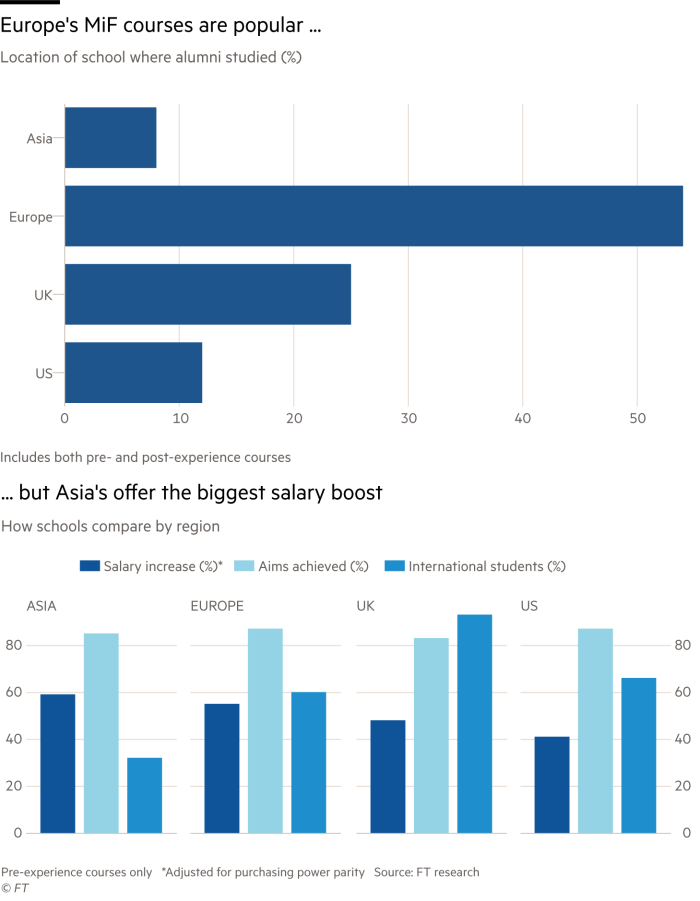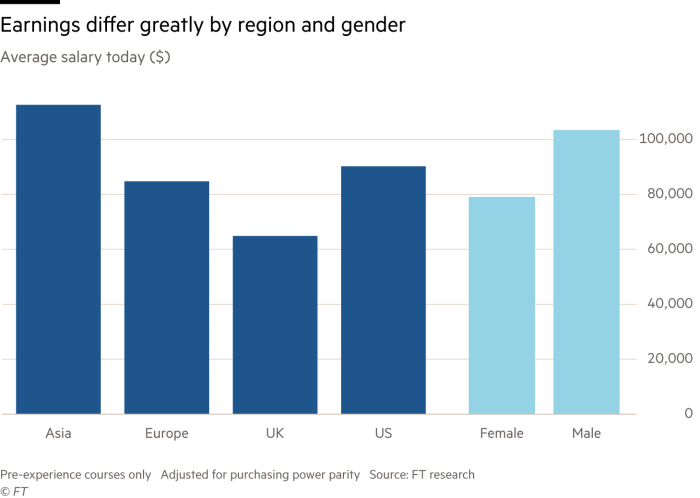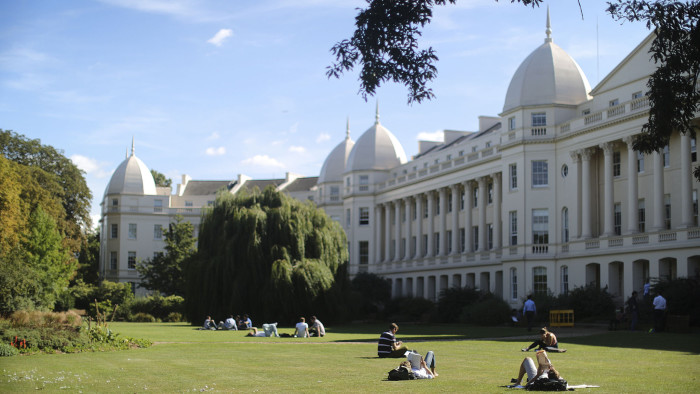HEC Paris tops 2020 masters in finance ranking

Roula Khalaf, Editor of the FT, selects her favourite stories in this weekly newsletter.
When the FT’s masters in finance ranking began, in 2011, Donald Trump was still presenting The Apprentice and coronaviruses were a niche interest among microbiologists. Much has changed since then — but the number-one spot in the ranking has not. This year, as in 2011, HEC Paris tops the table.
More precisely, the French business school ranks first among providers of pre-experience masters in finance (MiF) courses — that is, for students with little or no relevant professional experience. The tables set out information on the best programmes worldwide in this area, as well as on the top three courses for people who have already worked in the finance sector. It is based on surveys of schools and of alumni who completed their masters in 2017.
HEC Paris has come top every year apart from 2017, when Edhec edged it aside, and 2019, when the ranking did not run. Its success is explained by the financial uplift that its alumni enjoy: the highest weighted average salary, at $149,750 this year, and the highest salary percentage increase three years after graduation. The school is also the best for career progress.
Masters in Finance rankings 2020

Find out which schools are in our ranking of post-experience and pre-experience postgraduate finance degrees. Find out how the tables were compiled.
HEC’s salary performance is not typical of European schools. Analysis of the pre-experience programmes shows that alumni of Asian schools have higher salaries and raises three years after graduation, when adjusted for purchasing power parity between countries.
Alumni from US and European schools, however, report greater success in achieving their overall aims in studying an MiF. Survey respondents say their main reasons for taking an MiF are better career opportunities and personal development, followed by improving earnings and acquiring specialised skills.
While mainland Europe is a popular place to study, with alumni from its schools representing more than 50 per cent of the cohort surveyed, UK business schools have the highest proportion of overseas graduates: nine in 10. Whether such an international intake persists after the coronavirus pandemic is a matter for future editions of the ranking.

The proportion of female students enrolled at ranked schools has grown over time but a gender pay gap remains. Male alumni from pre-experience programmes earn an average of $103,403, some 30 per cent more than their female contemporaries, whose average salary is $79,094. The gap rises to 34 per cent for post-experience courses. The average salary uplift is greater too: 60 per cent for men on pre-experience courses, compared with 48 per cent for women.

ESCP Business School is ranked second and Skema rises one place to third. With Essec fourth and Edhec fifth, French schools have taken the top five places in two successive MiF rankings. Likely reasons for this include a long history of running MiF programmes, good connections with the finance sector and relatively low fees.
Alumni rank ESCP first for its careers service and aims achieved. For the second year in a row, the school is also top for international course experience, a category that reflects students’ exposure to internships, classes and exchanges in other countries.
Chinese University of Hong Kong Business School registered the best progression in the ranking, climbing 19 places to 30th. Among Chinese schools, CUHK was judged best in the career progress category, and scores highly for the proportion of female students represented.

WHU — Otto Beisheim School of Management, in Germany, is this year’s highest new entrant, in 22nd place. Alumni praise its exchange programme, career events and networking opportunities.
MIT: Sloan dropped one place to eighth and is the top school in the US. Its alumni earn $142,876 on average, the highest weighted salary among US institutions in the ranking. Surveyed graduates praised MIT: Sloan for providing a thorough immersion in the subject.
Only a few schools took part in the ranking of post-experience finance courses. London Business School (LBS) remains top, ahead of the University of Cambridge: Judge and Singapore Management University: Lee Kong Chian.

LBS alumni have the highest percentage salary increase and the school is ranked number one for career progress and international students.
Cambridge: Judge scores highest for value for money, careers service and international mobility. Its alumni have the highest salary, at $136,080.
Lee Kong Chian has the highest percentage of female students and is first for international course experience.
This year we asked graduates to rate their overall satisfaction with the MiF course — the first time we have put this question, which does not feed into the ranking calculation. All the schools scored above eight out of 10 on average.
The MiF ranking was suspended in 2019, owing to technical upgrades. This year’s calculations include data from 2018 where applicable.
Comments